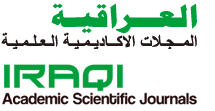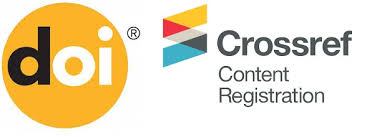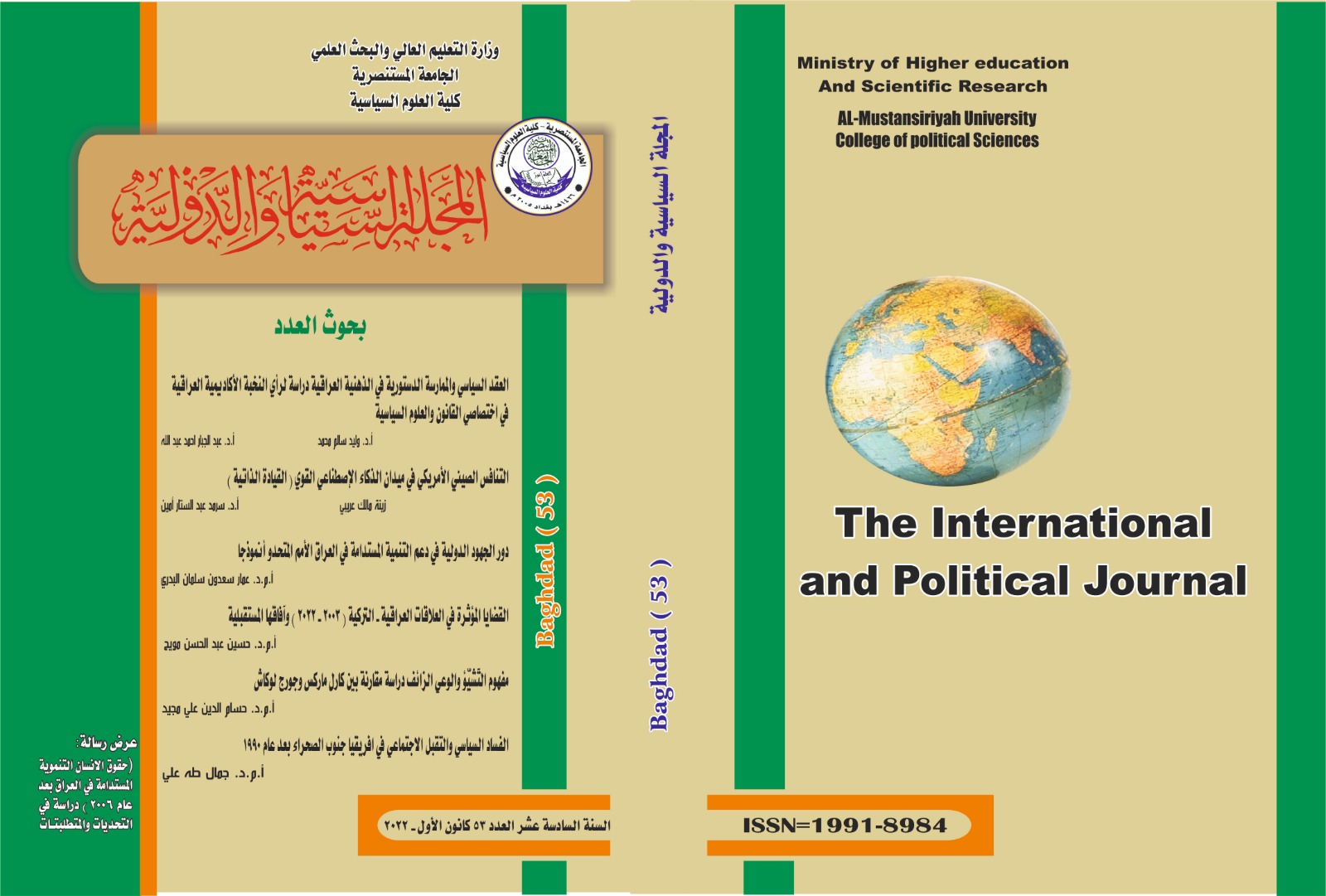Iranian foreign policy towards Syria (a study in pillars and means)
DOI:
https://doi.org/10.31272/ipj.i56.248Keywords:
Foreign Policy, Iran, the Syrian Crisis, Political Mechanisms, Economic MechanismsAbstract
The development of the Syrian crisis and its transformation into a war has imposed new challenges on Iran. This development may lead to the fall of one of its allies in the Arab Levant, and this in turn will negatively affect its communication with Hezbollah and the Palestinian resistance factions loyal to it. It also creates obstacles to Iranian influence in the region and affects Syria’s relationship with Hezbollah in the event of the collapse of the Syrian regime, of which Lebanon is a natural geographical extension. Iran’s relationship with Hezbollah is of great importance, as it facilitates the transit of weapons and armed groups, whether from Iran or even from the Syrian people themselves. For these reasons, Iran moved towards Syria through several means and mechanisms, whether economic, military, or even cultural, in order to maintain its presence in the Middle East and its extensions to support the Palestinian resistance factions.
References
أرتيمة, خالد جويعد. 2008. "تأثير النفوذ الإيراني على الدول العربية ــ سوريا ولبنان." رسالة ماجستير، قسم العلوم السياسية، جامعة مؤتة، ص 88.
إسماعیل, محمد صادق. 2010. إيران إلى أين؟ من الشاه إلى نجاد. القاهرة: العربي للنشر والتوزيع.
الاسطل, عبد الكريم. 2014. السياسة الخارجية للقوى الإقليمية تجاه الثورة السورية "تركيا وايران" 2011 ـــ 2014. غزة: جامعة الاقصى.
البنا , إبراهيم محمد واخرون. 2023. الأزمة السورية والصراع الإقليمي والدولي في المنطقة. 2 شباط . https://democraticac.de/?p=87505.
البنا ,إبراهيم محمد واخرون. 2023. الأزمة السورية والصراع الإقليمي والدولي في المنطقة. 2 2. https://democraticac.de/?p=87505.
2021. التقرير السياسي لعام 2021. دمشق: سفارة جمهورية العراق في دمشق، ص 9.
الخلايلة, المعتصم بالله أحمد. 2009. "العلاقات السورية الإيرانية خلال ثلاثة العقود الماضية." رسالة ماجستير، قسم العلوم السياسية، جامعة مؤتة، ص 81.
الزعبي, خيام. 2022. "سياسة إيران الخارجية والأزمة السورية." مجلة مدارات إيرانية المجلد 5 ( العدد 18): ص45.
الزغبي, خيام. 2022. "العلاقات الاقتصادية الإيرانية السورية وأبعادها الإستراتيجية." مجلة مدارات إيرانية المجلد 5 ( العدد 17): ص24.
الزويري, محجوب. 2013. حدود الدور الإقليمي الإيراني: الطموحات والمخاطر. https://studies.aljazeera.net/ar/files/iranandstrengthfactors/2013/04/20134492330407430.html.
الشاهر, شاهر إسماعيل. 2019. "الموقف الإيراني من الحرب على سوريا." مجلة جامعة الفرات للدراسات والبحوث العلمية (العدد 44).
الشاهر, شاهر إسماعيل. 2019. "نحو فهم للموقف الإيراني من الحرب على سوريا." مجلة الفكر السياسي (لعدد 71): ص 185.
الشيخ, سلمان. 2012. ضياع سوريا وكيفية تجنبه. الدوحة: مركز بروكنجز الدوحة.
الغريري , موسى وآخرون. 2012. العرب وإيران مراجعة في التاريخ والسياسة، المركز العربي للأبحاث ودراسة السياسات. بيروت.
المهدي, شنين. 2014. السياسة الخارجية الايرانية تجاه دول المشرق العربي (2001 ـــ 2013). رسالة ماجستير غير منشورة، جامعة محـمد خيضر، بسكرة: كلية الحقوق والعلوم السياسية، ص 183.
2023. الوكالة العربية السورية للإنباء "سانا" . 5 نيسان. https://sana.sy/?p=1886748
بشارة, عزمي. 2013. "سوريا درب الآلام نحو الحرية." المركز العربي للأبحاث ودراسة السياسات ص 517 -518.
دحدوح, نور الهدى. 2015. السياسة الخارجية الإيرانية والسعودية تجاه الأزمة السورية. رسالة ماجستير غير منشورة، جامعة العربي بن مهيدي ، لكلية الحقوق والعلوم السياسية، ص 35-36.
دخيل , حسين أحمد وميثاق العيسى. 2019. "الموقف الأمريكي تجاه الدور الإيراني في سوريا والعراق في ظل تنظيم داعش." مجلة مدارات إيرانية (المركز العربي للدراسات الإستراتيجية والسياسية والاقتصادية) (العدد 4 ): ص 132.
زيتي, أياد بدر. 2015. "دور السياسة الخارجية في مواجهة الضغوط السياسية الاقتصادية على سوريا." إطروحة دكتوراه، كلية الاقتصاد ، جامعة تشرين، اللاذقية، ص 20 و 21.
سمان, عائشة. 2017. الأبعاد الجیواستراتیجیة للسياسة الخارجية الايرانية والسعودية تجاه منطقة الشرق الأوسط اليمن انموذجا. رسالة ماجستير، جامعة محمد بو ضياف، المسيلة: كلية الحقوق والعلوم السياسية ، ص33.
عبدالقادر, نزار. 2017. "الشراكة الروسية الإيرانية في سوريا وتأثيرها على الوضع الجيوستراتيجي في الشرق الأوسط،." مجلة الدفاع الوطني اللبناني ( العدد 99): ص15-16.
عوض الله, جميلة أحمد . 2016. "النظام العالمي الجديد وأثره على العلاقات السورية الإيرانية." رسالة ماجستير، قسم العلوم السياسية، جامعة الأزهر، غزة، ص 55.
عيد, وصفي محمد. 2016. "الأمن القومي لدول المشرق العربي وإشكالية البرنامج النووي الإيراني." مجلة دفاتر السياسة والقانون ( العدد 15): ص143.
فراس أبوهلال. 2012. إيران والثورات العربية الموقف والتداعيات. الدوحة: المركز العربي للأبحاث ودراسة السياسات.
فريجة, عبد الرحمن. 2019. "أدوات التأثير الإيراني على سوريا ـ العراق ـ اليمن." مجلة مدارات إيرانية (المركز العربي للدراسات الإستراتيجية والسياسية والاقتصادية) ( العدد 4 ): ص49.
قدور, صفاء. 2019. "العلاقات السورية ــ الإيرانية وآفاقها المستقبلية." مجلة جامعة البعث المجلد 41 ( العدد 80): ص 92.
قناة الميادين. 2013. 4 8. https://www.almayadeen.net/news.
مجموعة باحثين. 2012. التوازنات والتفاعلات الجيوستراتيجية والثورات العربية. الدوحة: المركز العربي للأبحاث ودراسة السياسات.
يحوي، فؤاد. 2018. الدور الإقليمي الإيراني في منطقة الشرق الأوسط بعد الثورات العربية سوريا إنموذجاً. رسالة ماجستير غير منشورة، جامعة محمـد بو ضياف، مُقدمة لكلية الحقوق والعلوم السياسية، ص 67.
المصادر باللغة الانكليزية :
Artima, Khaled Jwaed. 2008. “The Impact of Iranian Influence on Arab Countries – Syria and Lebanon.” Master's thesis, Department of Political Science, Mu'tah University, p. 88.
Ismail, Muhammad Sadeq. 2010. Where to Iran? From the Shah to Ahmadinejad. Cairo: Al-Araby for publishing and distribution.
Al-Astal, Abdul Karim. 2014. alsiyasat alkharijiat lilquaa al'iiqlimiat tujah althawrat alsuwria "turkia wayran" 2011 2014 [The foreign policy of the regional powers towards the Syrian revolution, "Turkey and Iran" 2011-2014]. Gaza: Al-Aqsa University.
Albanna, Ibrahim Mohamed, et al. 2023. "The Syrian Crisis and the Regional and International Conflict in the Region". February 2 https://democraticac.de/?p=87505.
Albanna, Ibrahim Mohamed, et al. 2023. "The Syrian Crisis and the Regional and International Conflict in the Region". 2 2. https://democraticac.de/?p=87505.
2021. Political Report for 2021. Damascus: Embassy of the Republic of Iraq in Damascus, p. 9.
Al-Khalayleh, Al-Mu’tasim Billah Ahmed. 2009. “Syrian-Iranian Relations During the Past Three Decades.” Master's thesis, Department of Political Science, Mu'tah University, p. 81.
Al-Zoubi, Khayyam. 2022. “Iran’s Foreign Policy and the Syrian Crisis.” Orbits Iranian Journal, Volume 5 (Issue 18): p. 45.
Al-Zoghbi, Khayyam. 2022. “Iranian-Syrian Economic Relations and Their Strategic Dimensions.” Orbits of Iran, Volume 5 (Issue 17): p. 24.
Al-Zweiri, Mahgoub. 2013. "The Limits of Iran's Regional Role: Ambitions and Risks". https://studies.aljazeera.net/ar/files/iranandstrengthfactors/2013/04/20134492330407430.html.
Al-Shaher, Shaher Ismail. 2019. “The Iranian Position on the War on Syria.” Al-Furat University Journal for Scientific Studies and Research (Issue 44).
Shaher, Shaher Ismail. 2019. “Towards an Understanding of the Iranian Position on the War on Syria.” Journal of Political Thought (No. 71): p. 185.
Sheikh, Salman. 2012. Losing Syria and How to Avoid It. Doha: Brookings Doha Center.
Al-Ghurairy, Musa et al. 2012. The Arabs and Iran: A Review of History and Politics, Arab Center for Research and Policy Studies. Beirut.
Al-Mahdi, Shaneen. 2014." Iranian foreign policy towards the countries of the Arab East (2001-2013)". Unpublished master's thesis, Mohamed Kheidar University, Biskra: Faculty of Law and Political Science, p. 183.
2023. The Syrian Arab News Agency “SANA”. April 5th. https://sana.sy/?p=1886748
Bishara, Azmy. 2013. “Syria: The Path of Pain to Freedom.” The Arab Center for Research and Policy Studies, pp. 517-518.
Dahdouh, Nour al-Huda. 2015. "Iranian and Saudi Foreign Policy towards the Syrian Crisis". Unpublished master's thesis, Larbi Ben M'hidi University, Faculty of Law and Political Science, pp. 35-36.
Dakhil, Hussein Ahmed and Mithaq Al-Essa. 2019. “The American Position Towards the Iranian Role in Syria and Iraq Under ISIS.” Orbits of Iran (Arab Center for Strategic, Political and Economic Studies) (Issue 4): p. 132.
Zaiti, Iyad Badr. 2015. “The Role of Foreign Policy in Facing Political and Economic Pressures on Syria.” PhD thesis, Faculty of Economics, Tishreen University, Lattakia, pp. 20 and 21.
Samman, Aisha. 2017. "Geostrategic dimensions of Iranian and Saudi foreign policy towards the Middle East, Yemen as a model". Master's thesis, Mohamed Boudiaf University, M'sila: Faculty of Law and Political Science, p. 33.
Abdel Qader, Nizar. 2017. “The Russian-Iranian Partnership in Syria and its Impact on the Geostrategic Situation in the Middle East.” Lebanese National Defense Journal (Issue 99): pp. 15-16.
Awad Allah, Jamila Ahmed. 2016. “The New World Order and its Impact on Syrian-Iranian Relations.” Master's thesis, Department of Political Science, Al-Azhar University, Gaza, p. 55.
Eid, Wasfi Muhammad. 2016. “National Security of the Levant Countries and the Problematic of the Iranian Nuclear Program.” Journal of Policy and Law Notebooks (Issue 15): p. 143.
Firas Abu Hilal 2012. Iran and the Arab Revolutions: Position and Implications. Doha: Arab Center for Research and Policy Studies.
Freijeh, Abdel Rahman. 2019. “Tools of Iranian Influence on Syria-Iraq-Yemen.” Orbits of Iran (Arab Center for Strategic, Political and Economic Studies) (Issue 4): p.49.
Kaddour, Safaa. 2019. “Syrian-Iranian Relations and Their Future Prospects.” Al-Baath University Journal, Volume 41 (Issue 80): p. 92.
Al-Mayadeen TV. 2013. 4 8. https://www.almayadeen.net/news.
A group of researchers. 2012. Geostrategic Balances and Interactions and the Arab Revolutions. Doha: Arab Center for Research and Policy Studies.
Yahwi, Fouad. 2018. "The Iranian regional role in the Middle East after the Arab revolutions, Syria as a model". Unpublished master's thesis, Mohamed Boudiaf University, submitted to the Faculty of Law and Political Science, p. 67.
Additional Files
Published
How to Cite
Issue
Section
License

This work is licensed under a Creative Commons Attribution 4.0 International License.
Journal Policies
All articles published in the International and Political Journal are licensed under a Creative Commons Attribution 4.0 International License. This means that the Authors can:
The journal allows reuse and remixing of content in accordance with a Creative Commons license.
Copy and redistribute the material in any medium or format.
Policy of publishing in The International and Political Journal
The journal is committed to the ethics of scientific publishing, and according to the publication ethics report of the journal.
The decision to publish is based on the value of the scientific research, to what extent it meets the conditions of publication approved, the declared policy of the journal, and its specialty.
It is based on the principles of the scientific honesty, and originality of research submitted for publication. It deals with the names of reviewers and their reports with great confidentiality.
The opinions published in the journal reflect the views of the authors, and not necessarily reflect the opinion of the editorial board.
The journal does not adhere to the publication of whatever comes to it. The time and place of publication are subject to technical considerations adopted in the editorial plan of the journal.
The journal does not abide to return the research papers to their owners whether accepted for publication or not.
The researcher is to be provided with the acceptance of publication within about 24 WEEKS. As for publication, the editorial board reserves its right in priority of publishing. The arrangement of the research papers in the same issue is subject to technical standards.
Diversify of publishing papers from solid universities and scientific centers from inside and outside Iraq is preferable.
The journal maintains hard copies and electronic archive of the published issues in addition to the publication of the research papers.
The journal also publishes the issues electronically through the website of the journal, and the official website of the Iraqi academic journals, and makes it possible to download. Thus, documenting the intellectual property of the research papers and publishing them internationally is achieved.
Terms of publication may be modified when necessary with no previous notice.
The researcher obtains a copy of his research paper. If he wishes to buy acopy of the journal, the volume costs ID 10000 from inside Iraq and $8from the outside.
The Editorial Board considers that the researcher who submits his research paper for publication in the journal has already read the terms and conditions of publication and agreed on them.
The journal publishes the research papers of the postgraduate students in special issues for this purpose.
Stages of editing and publishing:
The researcher undertakes that his research has never been published before, and has not been submitted for publication to other sides until the end of the evaluation procedures and the acceptance of publication in the journal.
The research papers submitted for publication are to subjected for preliminary examination by the editorial board to determine their suitability for the journal specialization, its policy and the safety of scientific research procedures, and then to indicate its eligibility for scientific evaluation. The editorial board may apologize for accepting the research all together or require the researcher to amend it in accordance with the journal policy before sending it to editors.
After conducting the scientific evaluation, the research paper returns back to the researcher to make the required amendments within a maximum of two weeks.
A copy of the final research paper is to be submitted to the secretariat of the journal a hard copy and a soft copy on a CD, in both Word and PDF format. The researcher is fully responsible for the typing and linguistic mistakes after submitting the full research paper on a CD.
Plagiarism checker
All research papers are subjected to Turnitin program to uncover plagiarism before being sent to scientific evaluation. The researcher undertakes a written pledge to take the legal and moral responsibility, in the event of the emergence of plagiarism or taking from the efforts of other researchers, without a reference to them. The journal uses appropriate anti-plagiarism software, such as Turnitin to check for plagiarism.
Dealing with Allegations of Research Misconduct
The Journal shall take reasonable and serious steps to identify and prevent the publication of papers where research misconduct has occurred, including plagiarism, citation manipulation, and data falsification/fabrication.
Scientific Evaluation:
Scientific evaluation strengthens the research paper submitted to the journal and helps to take the appropriate decision by the editorial board to publish it. It also benefits the researchers to improve and correct their research papers.
The research paper is sent to three evaluators in the same specialty to evaluate












